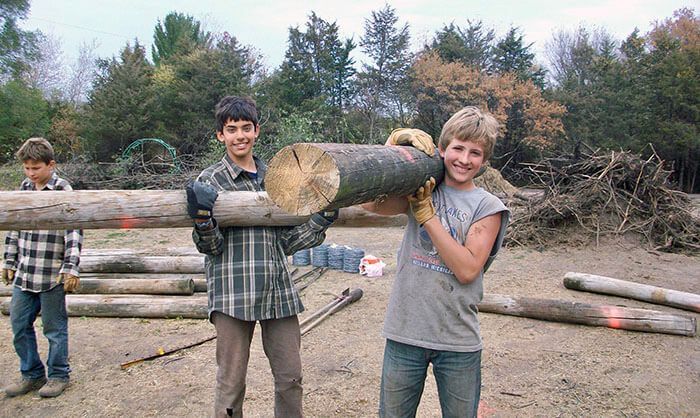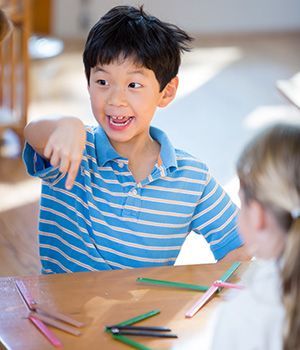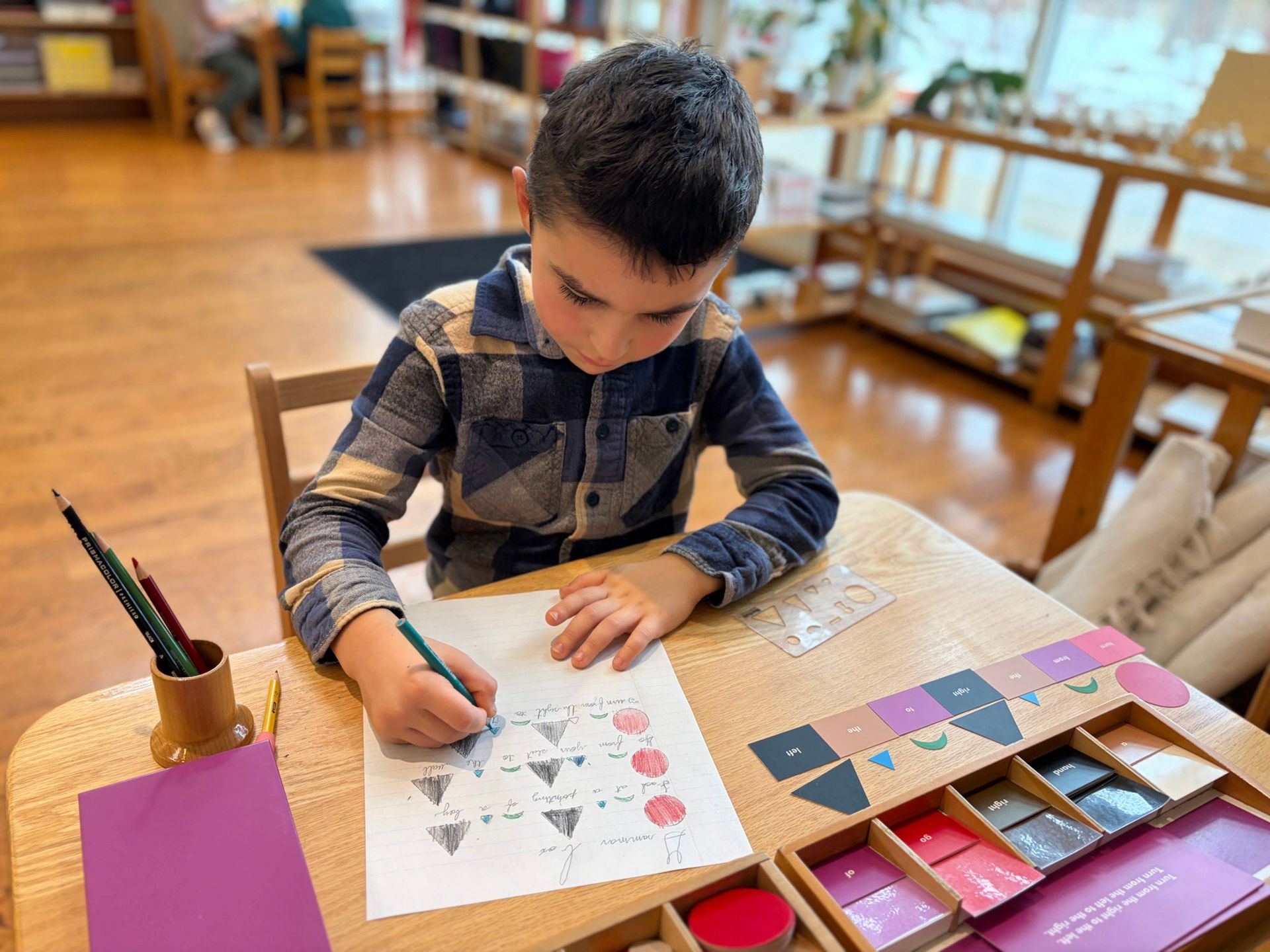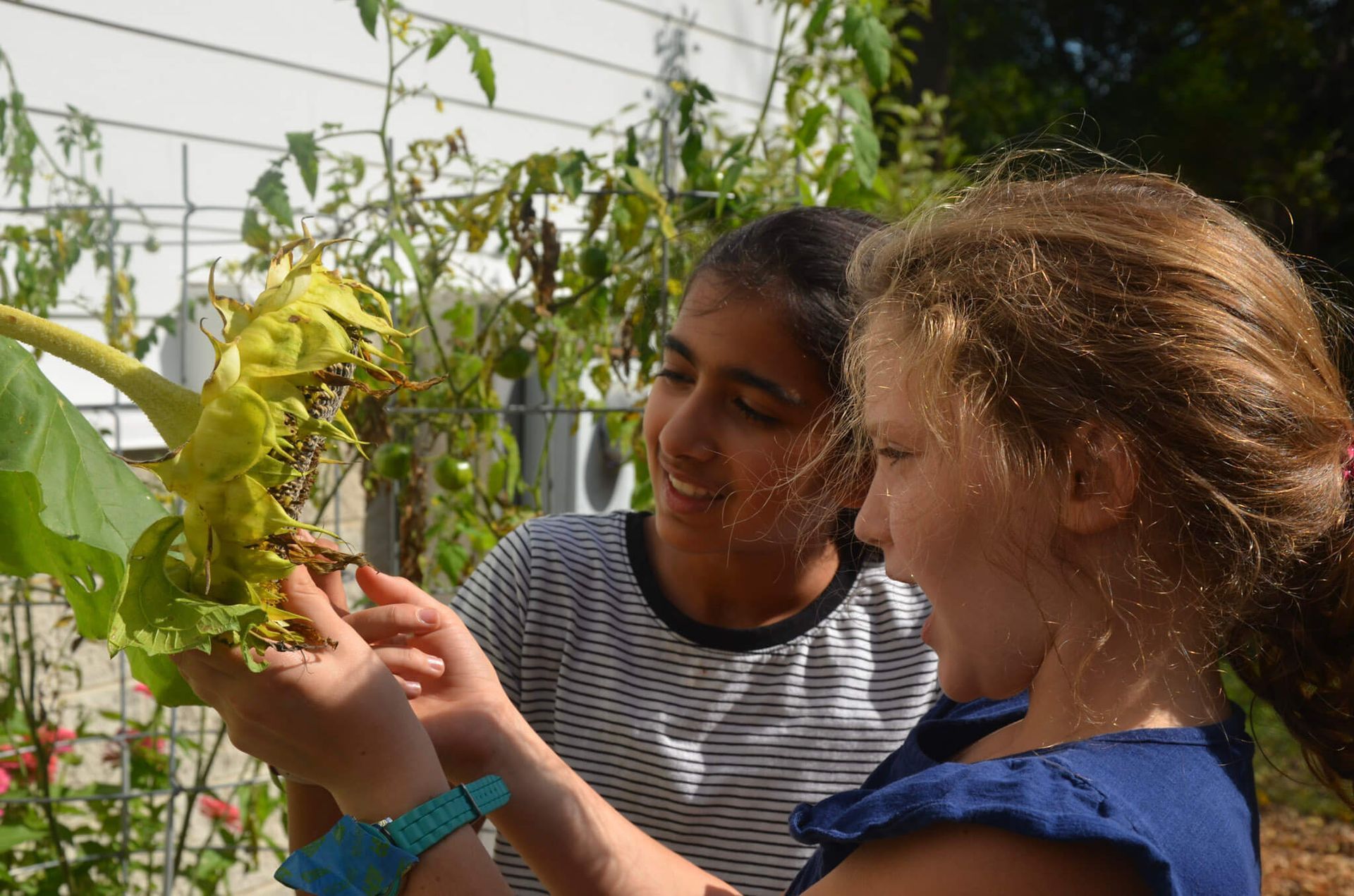
I’ll admit it: when a parent announces, “I just want my child to be happy,” I cringe inside. Of course, I know what they are saying—that they really want to help their child develop the strengths that will lead to a happy life. Isn’t building happiness a noble pursuit? Happy people are thriving, successful, joyful people who help others and improve the world. There’s nothing wrong with wanting happiness…as long as we keep in mind that we do not hand happiness to our children as a gift. Instead, it is a quality that every human being must learn to cultivate inside him or herself.

Parenting, if it can be compared to driving a car, is an “off-road” experience. You get in a Jeep and try your best to traverse bumps the size of boulders, huge pot holes, splash through mud, fuss with the windshield wipers, and occasionally have smooth sailing through gorgeous fields of flowers.
The more we focus on the road itself, the less effective we are, because we cannot change the state of the road or even which one we’re on. Instead, we must put our energy into preparing the Jeep and readjusting in little pull overs along the way. We can change the suspension, swap the tires, or add break fluid.
We can also adjust our attitude; with an activity like riding over rough bumps in a Jeep, the more you tighten up, the less comfortable you are, yet if you get too loose you can really get hurt. There’s a balance to find of relaxing and going with the motion while flexing your muscles enough to keep upright and safe.
Everyone Drives Themselves
In this metaphor, every child is driving his or her own Jeep, too. We parents cannot get in there and do the driving for them. But children have advantages over us—they are more open, not burdened by adult worries and attitudes, and they have terrific stamina. They are on a fresh start. Happiness is learning, mid-bump, how to use the gears, adjust the suspension, handle the popped tires and the smashes to the frame. Thank goodness for our children’s resilience, their closeness to joy, and their courage, so that they can learn as they go along, and keep on going!

Dr. Montessori advised us to focus on preparing the environment, modeling for and linking children to the experiences in it, and providing freedoms for them with boundaries. These external guides from us become internal as each child becomes their own adult. They come to create their own environments, they choose their mentors and connect, and they give themselves freedoms and boundaries. This ultimate independence from us offers them, and us, great happiness. To support our children to eventually become their own adults, we must see them as capable. In Montessori’s words, we must “…find ourselves confronted by a being no longer to be thought of as helpless, like a receptive void waiting to be filled with our wisdom, but one whose dignity increases in the measure to which we see him [as being] the builder of [his] own mind…” (The Absorbent Mind, p. 20)
So, the next time your child expresses that she or he is having a hard day, give them a hug and a smile of assurance. They are on the road to building happiness. It is not a smooth road. Tell them, “You’re doing an amazing job. I’m so proud of how you handle so many things, and of how brave you are. And…there are some gorgeous fields of flowers just up ahead.”


